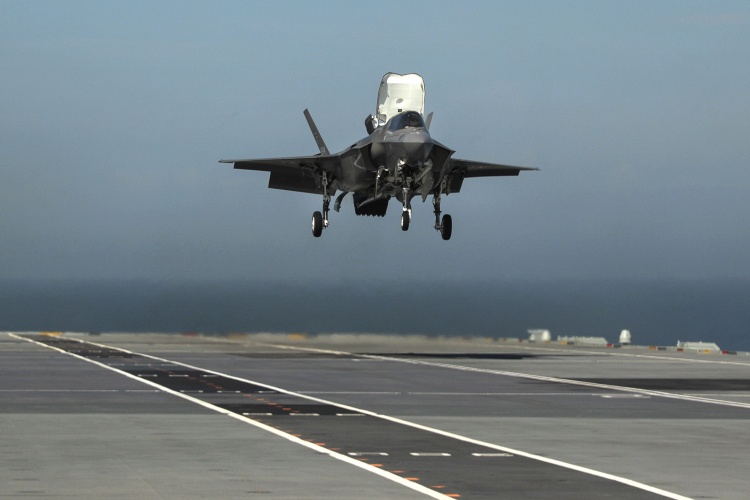
MOD aircraft such as F-35s, Typhoons and Wildcat helicopters currently use conventional fuel, with aviation accounting for nearly two thirds of fuel used across defence.
The new standards could lead to a significant reduction in emissions and improve defence’s carbon footprint, allowing for the use of 50 per cent sustainable fuel sources known as ‘drop-ins’ including hydrogenated fats and oils, wood waste, alcohols, sugars, household waste, biomass and algae.
It is estimated that by substituting 30 per cent of conventional fuel with an alternative source in a jet travelling 1,000 nautical miles could reduce CO2 emissions by 18 per cent. The move has been described as marking a ‘huge shift’ in global fuel consumption and opens the door for thousands of civilian and military aircraft to be fuelled with Sustainable Aviation Fuels (SAFs).
As well as cutting emissions, using diverse and readily available materials such as household waste including packaging, grass cuttings and food scraps will prevent waste being sent to landfill.
UK defence secures largest investment since the Cold War
“The UK is leading the way in sustainability and by refining our aviation fuel standards we are taking simple yet effective steps to reduce the environmental footprint of defence,” said Defence secretary Ben Wallace. “As we strive to meet this government’s net zero carbon emissions target by 2050, it is right that we step up to spearhead these positive changes across both military and civilian sectors.”
Australia and several NATO countries are said to rely on the UK’s standards to influence what fuel they use, and commercial airlines in the UK also follow the defence standard as there is no commercial equivalent.
UK suppliers are also more likely to offer the same standard for commercial aircraft if they are already developing and importing sustainable fuel to supply defence.
The Compania Logistica de Hidrocarburos-Pipeline System (CLH-PHS), based in Madrid, provides fuel to several military airfields including Heathrow, Gatwick and Manchester airports and has welcomed the MOD’s new standards.
Lieutenant General Richard Wardlaw OBE, chief Defence Logistics and Support, said: “With the Defence Climate Change and Sustainability Strategy, due for release later this year, we are at the start of a journey to adopt a range of greener policies and new greener technologies, so that we can reduce our environmental impact while enhancing our operational capabilities.”





Swiss geoengineering start-up targets methane removal
No mention whatsoever about the effect of increased methane levels/iron chloride in the ocean on the pH and chemical properties of the ocean - are we...